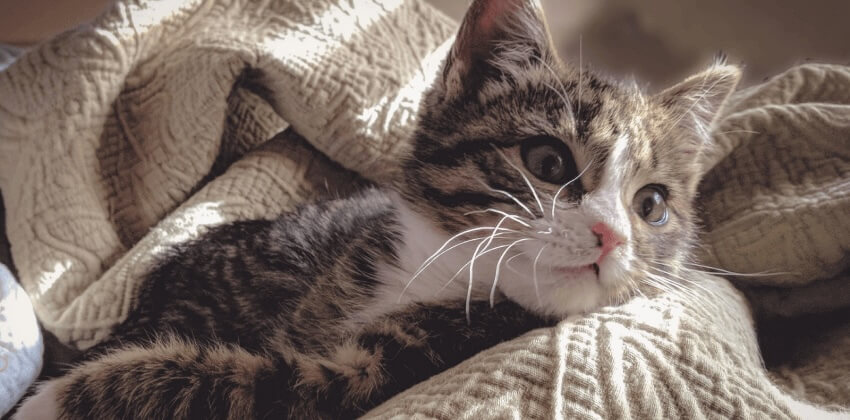Vaccinations
Vaccinating your pet is a relatively inexpensive but essential way to protect his or her health. In addition to protecting your pet from a wide array of life-threatening illnesses, vaccinations can prevent diseases prevalent in wildlife and those that can be passed to humans. It’s particularly important to administer vaccinations when pets are puppies and kittens because their young immune systems are still developing and need protection to stay healthy.
While any medical treatment involves some degree of risk, in the case of vaccinations, the benefits far outweigh any potential side effects. Vaccines are carefully tested and regulated to ensure they are safe and effective. Vaccines are safer now than they used to be due to advances in research, improved manufacturing processes, and more thorough monitoring of potential side effects. Veterinarians and regulatory bodies closely monitor these vaccines to make sure they protect your pet from serious, often life-threatening diseases, with minimal risk of side effects. Adverse reactions are rare and usually mild and short-term when they do occur. The benefits of vaccination far outweigh the risks, and by vaccinating your pet, you're giving them the best chance to stay healthy and protected from potentially dangerous illnesses.
Which vaccines should your pet have? Core vaccines are those recommended—and possibly mandated by law—for most pets. Core vaccines include:
- Rabies (dogs and cats)- New York State Requirement
- Dogs and cats need rabies vaccines to protect them from the potentially fatal rabies virus and to prevent its transmission to humans and other animals. Rabies is a deadly viral disease that affects the nervous system, often leading to paralysis and death if left untreated.
- In New York State, rabies vaccines are given at 12 weeks of age (3 months). The first vaccine is good for 1 year. Each subsequent vaccine is good for 3 years.
- DA2PPV – Distemper, Adenovirus 2, Parvo, and Parainfluenza (dogs)
- The DA2PP vaccine is crucial for dogs as it protects against four serious diseases: distemper, adenovirus, parvovirus, and parainfluenza, which are typically spread through direct contact with infected animals, contaminated environments, or airborne particles. These illnesses can cause severe health problems or death, so vaccinating helps ensure your dog's long-term health and reduces the spread of these infectious diseases.
- Vaccine series started as early as 6 weeks of age. The vaccine is then boostered every 4 weeks until pet is 16 weeks of age (4 months). After initial series the vaccine is good for 1 year. Any subsequent years the vaccine is good for 3 years.
- Leptospirosis (dogs)
- Leptospirosis vaccination is important for dogs because the bacteria that cause the disease can be found in wet environments, such as contaminated grass, water, or soil. This vaccine helps protect dogs from the potentially serious infection, which can lead to kidney or liver damage, and is also contagious to humans.
- Vaccine series started as early as 9 weeks of age. The vaccine will need to be bolstered 4 weeks later. After the initial vaccine series, the vaccine is good for 1 year. Following years, if the vaccine is overdue by more than 6 weeks the series will need to be restarted.
- FVRCP – Feline Viral Rhinotracheitis, Calicivirus, and Panleukopenia (cats)
- The FVRCP vaccine is essential for cats as it protects them from three contagious and potentially deadly diseases: feline viral rhinotracheitis, calicivirus, and panleukopenia. Vaccinating helps prevent these infections, which can cause severe respiratory issues, gastrointestinal problems, and even death, ensuring your cat stays healthy and safe.
- Vaccine series started as early as 6 weeks of age. The vaccine is then boostered every 4 weeks until pet is 16 weeks of age (4 months). After the initial series, the vaccine is good for 1 year. Any subsequent years the vaccine is good for 3 years.
- FeLV (cats)- Feline Leukemia
- The FeLV vaccine is important for cats as it protects against feline leukemia virus, which can lead to severe health problems like anemia, immune system suppression, and cancer. Vaccination is especially crucial for young cats that are likely to escape outside, outdoor cats, or those in multi-cat households, as the virus is transmitted through saliva, urine, and close contact with infected cats.
- The vaccine series started as early as 12 weeks. To start the vaccine series pet needs a negative Feline Leukemia test which can be performed at 12 weeks as well. Once a negative Feline Leukemia test is obtained the first vaccine is given and then boostered 4 weeks later. After the initial series the vaccine is good for 1 year. Subsequent years the vaccine is good for 2 years.
Other non-core vaccinations for dogs include Bordetella and Lyme vaccines. These are recommended for any dogs that frequent dog parks, boarding kennels, or any place where they’re socializing with other dogs.
- Bordetella (dogs)
- The Bordetella vaccine is essential for dogs as it protects against kennel cough, a highly contagious respiratory infection caused by the Bordetella bacteria. This vaccine is particularly important for dogs that interact with other dogs in places like kennels, daycare, dog parks, or grooming facilities, as it helps reduce the risk of spreading and contracting the disease.
- The vaccine is given as early as 8 weeks (2 months) of age and is always good for 1 year.
- Lyme (dogs)
- The Lyme vaccine is important for dogs as it protects them from Lyme disease, which is transmitted by ticks and can cause severe joint pain, kidney damage, and other health issues. While the vaccine doesn't prevent the dog from getting Lyme disease, it makes the symptoms less severe if they do contract the infection. Vaccinating is especially crucial for dogs in areas where ticks are prevalent, as it helps reduce the risk of infection and the complications associated with the disease.
- Vaccine given as early as 12 weeks of age. The vaccine is then boostered 4 weeks later. After the initial vaccine series the vaccine is good for 1 year. If the vaccine is more than 6 weeks overdue the series will need to be restarted.
It’s also important to note that even pets who live primarily indoors should be vaccinated, as they can still be exposed to disease. Your Aqueduct Animal Hospital veterinarian can advise you on which vaccinations are required or recommended for your pet based on age, health, and lifestyle. For more information or to schedule an appointment, call us at (518) 667-9153.

